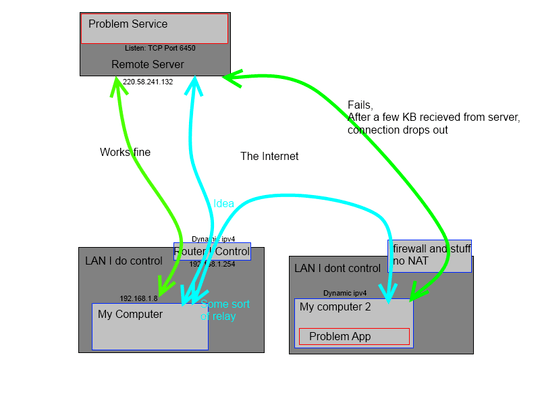3
1
Ive got an application and internet service that works fine from my home network, but fails (TCP connection "dies" after a few KB sent) on the university residence network. The admins of the two systems have spent a few months saying that they did nothing to cause this and blaming each other, and not really taking much interest, while all I want is to be able to use the application for more than the occasion I visit home...
I ran some tests, and there seems to be nothing about the data being sent that causes this, at least when the data isnt being sent from that exact server.
What I want to do now is route the connection through another computer outside the university network, which I know does work, as per the diagram below, however I have no idea how to do this, and force a specfic application to route through it for its outgoing TCP connection.

This sounds likely to be a Path MTU Discovery black hole. At one end of the connection or the other, someone has a link with an MTU less than 1500, but a firewall is blocking the "Destination Unreachable, fragmentation required but 'don't fragment' bit set" ICMP error messages from getting back to the sender. If you have any control over the service in question, try cranking down its MTU to 1400, and do the same on your machine inside the university. – Spiff – 2011-12-09T06:37:07.880